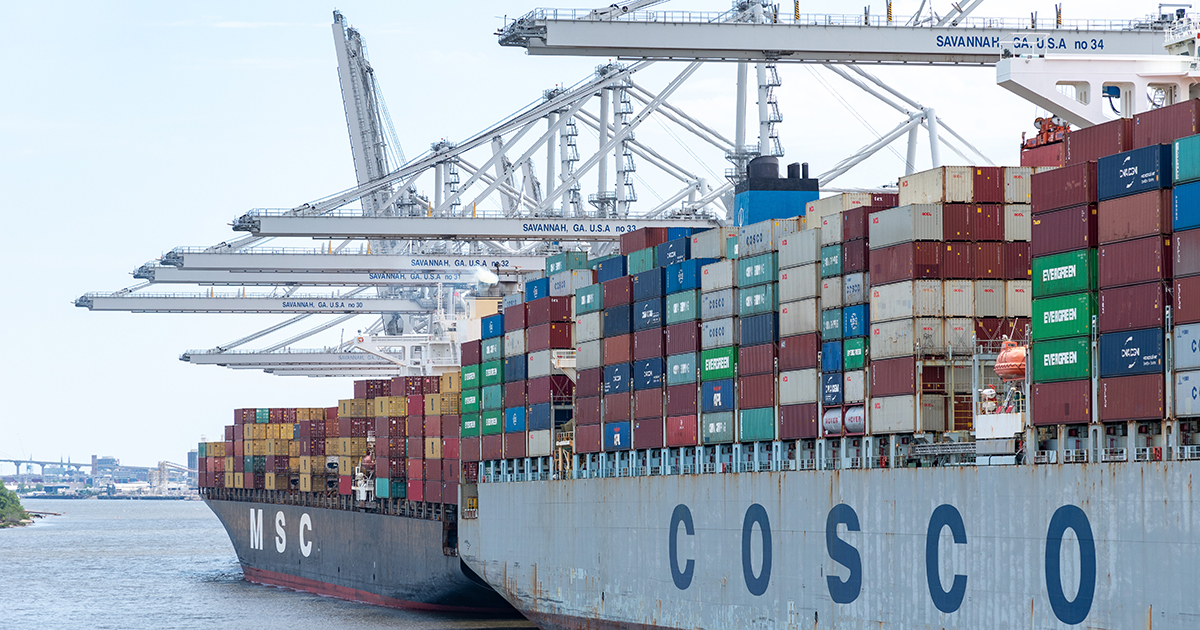How the Supply Chain Bottlenecks Will Affect Holiday Shopping

From the new iPhone 13 to bicycles, consumers likely will have difficulty finding popular items in stock this holiday shopping season.
That’s because the global supply chain remains hampered by disruptions spurred by the COVID-19 pandemic and lack of foresight from critical industries that failed to prepare for this scenario.
“Companies have spent years developing highly efficient, lean, integrated global supply chains,” said Brad Johnson, a lecturer of operations and information management at Babson College. “Then you have the pandemic, and coming out of the pandemic, it’s resulted in shocks to both the supply side and the demand side.”
Supply chain disruptions occurred last year amid COVID-19 lockdowns, but the problems are more dramatic this holiday season as consumers sprint toward a post-pandemic outlook. Consumers have pent-up demand for certain goods, including computer chips, household items, and even specific toys for the holidays. That, in turn, has caused increased demand for shipping containers, seaport access, and truck drivers who transport the goods from ports to a final destination, Johnson said.
Imported goods remain in short supply, Johnson added, because ports and transportation networks lack the necessary capacity to meet demand, among other supply challenges around the world.
China, the world’s largest exporter, is managing a power crisis by “essentially rationing electricity in certain plants,” Johnson said. “So, it is a challenge to produce the goods that are in demand.”
Cargo Ship Backlogs
The global supply chain crunch is visible from outer space.
NASA captured a satellite image October 10 depicting more than 70 ships waiting to dock and unload at the ports of Los Angeles and Long Beach in California.
“These are all holiday season goods sitting there,” Johnson said, “and they won’t make it to the end consumer in time.”
The increased demand for consumer goods—and insufficient docking capacity at ports—has caused cargo ship backlogs off the West Coast and the Port of Savannah in Georgia.
“They’ve been starved for investment,” Johnson said of the ports, “and we’re now seeing why they need it. You need bigger and better ports, more automated, that can handle more goods.”
Bottlenecks Impact Shopping
Johnson, who served as Wayfair’s vice president of operations before joining Babson, said supply-chain bottlenecks could prevent some consumers from getting the iPhone 13 this year because of computer chip shortages, while other consumers may encounter shortages in areas impacting personal recreation.
“If you’re looking for a bicycle for the holidays,” Johnson said, “good luck.”
Many bicycle components are made by Shimano Inc., a Japanese company that “had not increased capacity” to meet an increased demand for bikes during the pandemic, Johnson said. “That results in less supply just when demand is increasing, and higher prices.”
The computer chip shortage also has greatly impacted the auto industry, diminishing the supply of new vehicles and spurring auto worker layoffs.
Not getting the latest PlayStation “would be less concerning to me than the fact that auto production lines are going down,” Johnson said, “and that’s the livelihood of thousands and thousands of people as well.
“In the short term,” Johnson added, “consumers should be patient and look for alternatives versus what they might have originally wanted and realize it is a timing issue. Things will get through, but there are bottlenecks in the ports and in available trucking to get the goods from ports to warehouses.”
Implementing Risk Management
Companies that have implemented “supply chain risk management strategies” will be better equipped to meet consumer demand this holiday season compared with companies that “rested on their laurels,” Johnson said.
“There will be some companies that were more proactive and probably won’t have as many shortages,” he said. “Those that are running tighter supply chains and waiting for the ships to come in, I would expect a lot of the goods won’t make it in time for the holidays.”
One of the main problems is that supply chains have become too integrated, too lean, and have not built in enough resilience to risk, Johnson said, adding companies “need to invest in supply chain risk management.”
Johnson recommends manufacturers and shipping companies identify the potential for disruptions in the supply chain and develop a “risk-based strategy to both decrease the probability of a disruption happening and also reduce the consequence if it does happen.”
Possible Short-Term Relief
Responding to the global supply chain crisis, the ports of Los Angeles and Long Beach have expanded operations 24/7 and carriers such as FedEx and UPS have agreed to move more cargo.
Walmart, the largest U.S. retailer, also will significantly increase its off-peak hours over the next several weeks to get more products in its stores as Black Friday approaches.
These developments could “make a significant impact in the short term,” Johnson said.
For shoppers who cannot find a particular product in stock this holiday season, Johnson recommends consumer patience—and perhaps a broader outlook.
“If you can’t get the hot toy for the holidays,” he said, “I don’t think that’s what the holidays are about.”
Posted in Insights




